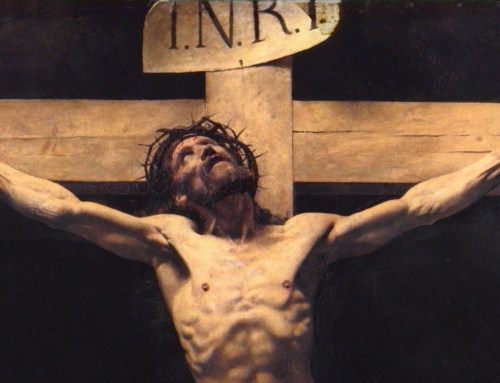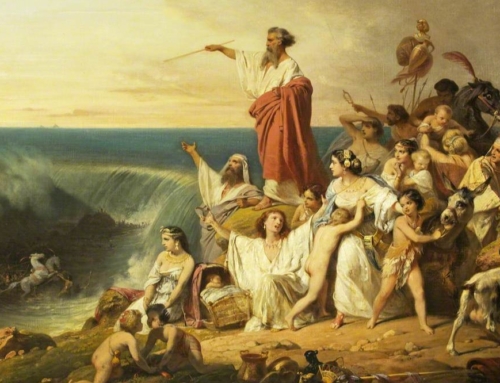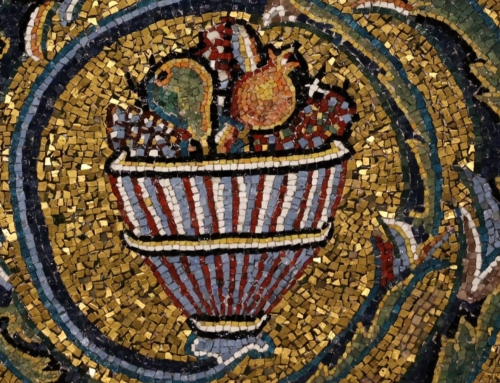As a child (but perhaps still now), I had my World Cup-winning goal perfectly choreographed. In the dying moments, with the ball crossed in from the left corner, I would almost be arriving on a late run. The cross would have floated over our forward—the chance seemingly lost. But with the ball skipping to the edge of the box, I would be there. The whole world would pause with bated breath. The entire stadium would be able to hear my foot make contact as the ball would cut the top of the grass toward the lower corner. And then: eruption, my name being chanted, my name being etched into glory.
I am not the only one to desire this. Man has a natural desire for glory, reputation, and remembrance. Homer writes about it in his epic tale, the Iliad: the protagonist Achilles sees his whole life as a choice between glory or peace (Iliad, 9.410-416). His opponent Hector too explains that he cannot “avoid war,” as he says: “I have learned to fight with the Trojans in the front in order to earn glory for my father and for myself” (Iliad, 6.440-446).
Should we want glory? Saint Thomas answers plainly: “Man’s happiness cannot consist in human fame or glory . . . [but] man’s beatitude depends, as on its cause, on the glory which man has with God” (ST I-II q. 2 a. 3). Aquinas further distinguishes between glory and vainglory, saying “the desire for glory does not, of itself, denote a sin: but the desire for empty or vain glory denotes a sin” (ST II-II q. 132 a. 1). According to St. Thomas, glory is vain when it is sought in something unworthy of glory, when it is sought from people unable to make a proper judgment, or when the person seeking glory seeks it for himself rather than for God or his neighbor (ST II-II q. 132 a. 1).
In the Scriptures, we see that God does things explicitly for his glory: “The Egyptians will know that I am the Lord, when I receive glory through Pharaoh, his chariots, and his horsemen” (Exod 14:18). And Jesus says: “Now glorify me, Father, with you, with the glory that I had with you before the world began” (John 17:5).
When Homer talks about glory, he uses the Greek word kleos (κλέος). Hector and Achilles were seeking kleos as something to be possessed, in search of some kind of pagan beatitude or eternity that would be won through their kleos. The Bible, however, almost always uses the word doxa (δόξα) instead. This change is significant. Glory in this sense belongs to God and is applied to men through their relationship with him (see Sirach 44-50). Truly, Jesus will bring us to glory (cf. Heb 2:10). This is the glory we should seek, the glory we shall share in Christ Jesus.
As we follow the rest of this World Cup, it is worth asking: were my dreams of World Cup glory good or bad? Does the pursuit of “glory” in sports in general lead to vice or to virtue? This is not a simple yes or no question. “Our beatitude depends, as on its cause, on the glory which man has with God” (ST I-II q. 2 a. 3). Insofar as “human glory” points toward the glory of God, we should give thanks. We want glory, reputation, and remembrance. Human glory will only give us these things (if it gives them at all) for a time. It is not wrong to seek them if we remain mindful of their relationship to God. There are plenty of examples of individuals and teams who keep such things in perspective. But it is in God alone that we can have eternal glory. With God alone will our names be permanently etched: “rejoice because your names are written in heaven” (Luke 10:20).
Further questions about virtues in sport are addressed in the upcoming issue of the Dominicana Journal, which focuses on eutrapelia (the virtue of playfulness).
✠
Photo by Rhett Lewis on Unsplash







